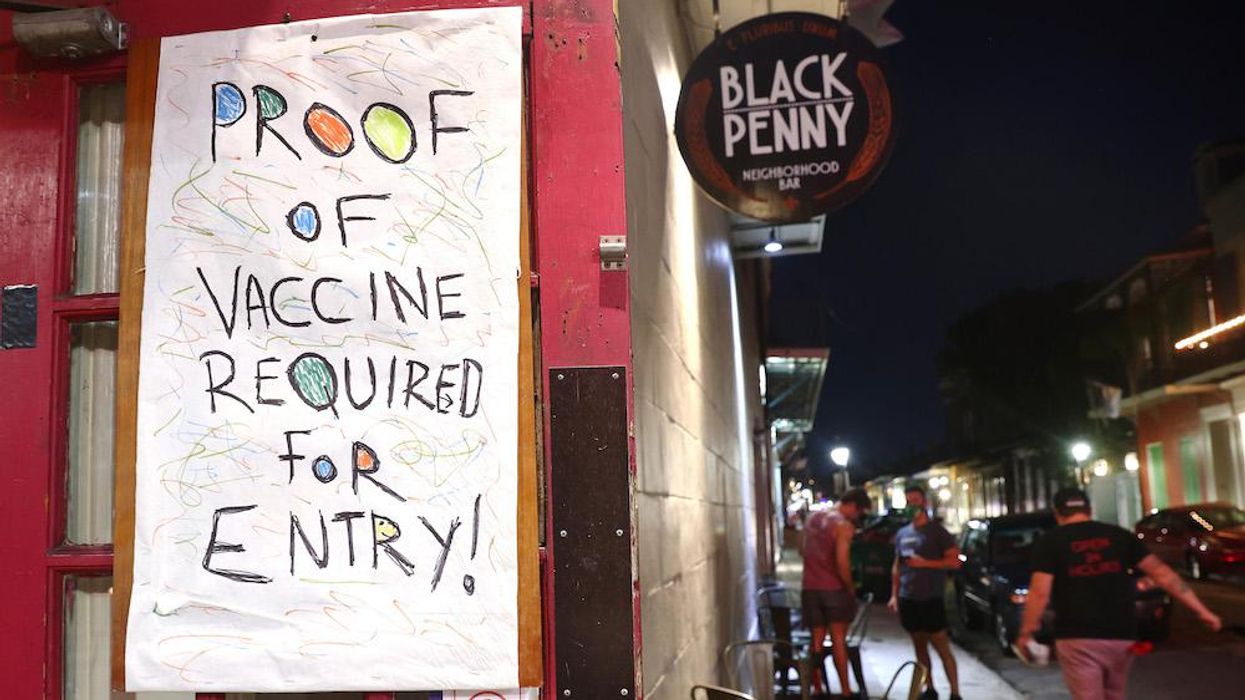
Photo by Mario Tama/Getty Images

Americans have received countless mixed messages about the effectiveness of COVID-19 vaccines, natural immunity, herd immunity, and virus transmission. Dr. Michael Segal, a neurologist and neuroscientist, wrote a piece for the Wall Street Journal attempting to clear up some misconceptions about how immunity works when it comes to the vaccines and natural immunity.
And he reached a conclusion that should pique the interest of millions of Americans — as well as policymakers: People who have had COVID-19 and recovered should not be required to get the vaccine, because they are less likely to spread the virus than vaccinated people who have never been infected.
Segal began his piece with a question that has been in the minds of many Americans confused by the Centers for Disease Control and Prevention's vacillating guidelines: "Vaccinated people are supposed to resume wearing masks, lest they contract and spread the virus. Yet unvaccinated people are still strongly urged to get the shots, which are said to be highly effective. How can both these claims be true?"
The truth is "there's more than one kind of immunity," Segal said.
First, he noted, there's "internal immunity," which, according to Segal, "protects the inside of the body, including the lungs" and "occurs by release of antibodies of the Immunoglobulin G type, or IgG, into the blood and production of T-cells."
Vaccine shots "are highly effective" at stimulating this type of immunity, Segal said, which "largely protects vaccinated people from being overwhelmed by the coronavirus, unless they have an immunodeficiency or are exposed to an unusually large amount of the virus."
The second immunity Segal cited was "mucosal immunity," which is a defense line that protects the nose and mouth, and thereby decreases the likelihood of spreading to others. This is an immunity, Segal explained, that is not normally obtained via vaccinations:
The mucous membranes secrete a particular form of antibodies of the Immunoglobulin A type, or IgA. But vaccines injected into our muscles—including all the approved inoculations against Covid—are largely ineffective at stimulating the secretion of IgA into our noses that occurs after actual infection with a virus. As a result, vaccinated people can contract a Covid-19 infection confined to the mucous membranes. They may get the sniffles but can spread the virus to others even if they are asymptomatic.
This fact, Segal pointed out, "has implications for public-health authorities' determination to achieve herd immunity through vaccination alone."
While the world waits for nasal spray vaccinations, he continued, "herd immunity may prove difficult to achieve unless more people get infected and develop natural immunity of both types."
But naturally, that's a problem, he continued, writing, "Given the dangers of infection, officials are rightly reluctant to encourage actual infection, and loath to mention its benefit in conferring mucosal immunity."
So what should people make of this?
Segal has answer: Don't "shun" the previously infected.
If vaccines are going to be mandated, make exceptions for those who have recovered from COVID-19, since their "natural mucosal immunity" puts them "at less risk than never-infected vaccinated people of spreading the virus to others."